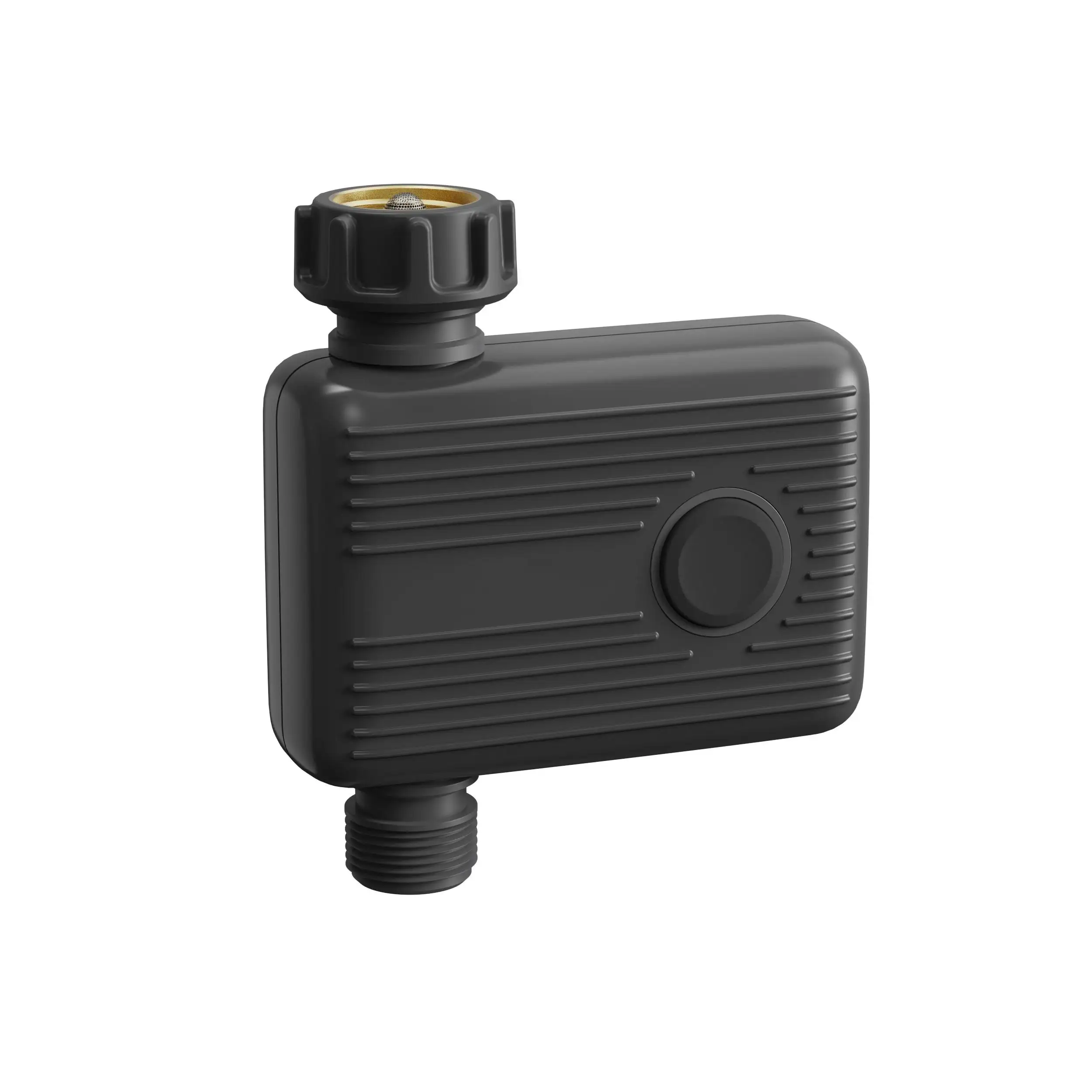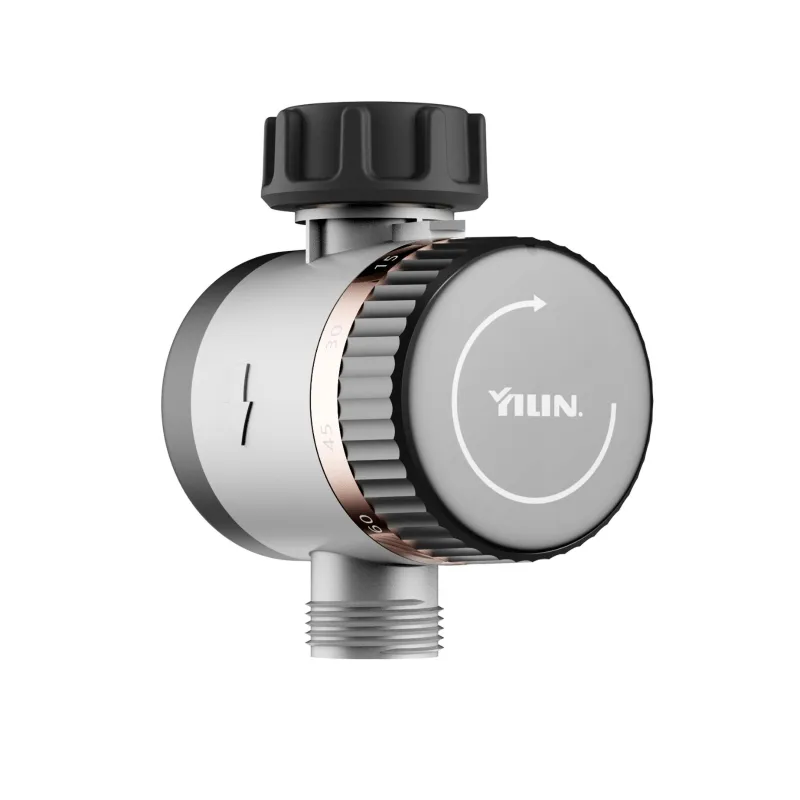The Complete Guide to Modern Irrigation Control Systems
Managing your garden's watering needs effectively can be the difference between a thriving landscape and a withered disappointment. A water timer serves as the brain of your irrigation system, ensuring your plants receive consistent hydration while conserving water and saving time. Whether you're maintaining a small herb garden or managing extensive landscaping, understanding how to choose the right water timer is crucial for successful plant care.
Today's water timers have evolved far beyond simple mechanical devices, incorporating smart technology and precision controls that make irrigation more efficient than ever. As water conservation becomes increasingly important, selecting the appropriate timer can help you maintain a beautiful garden while being environmentally responsible.
Understanding Water Timer Technologies
Mechanical Water Timers
Mechanical water timers represent the most basic and traditional option in irrigation control. These devices operate through a simple pin system or dial mechanism, allowing users to set specific watering durations. While they don't require batteries or electrical connections, mechanical water timers offer limited programming flexibility. They excel in reliability and simplicity, making them ideal for beginners or those seeking a straightforward solution.
The durability of mechanical timers is noteworthy, as they continue functioning regardless of power outages or electronic malfunctions. However, they typically lack features like multiple programming schedules or rain delay functions found in more advanced models.
Digital Water Timers
Digital water timers represent a significant advancement in irrigation control technology. These devices feature LCD screens and button interfaces, offering precise control over watering schedules. Users can program multiple start times, specific days of the week, and exact duration periods. Most digital timers operate on batteries, providing backup memory to retain settings during power interruptions.
The programming flexibility of digital water timers makes them excellent for gardens with varying water needs. They often include features like rain delay, seasonal adjustment, and multiple program storage, allowing for sophisticated irrigation management throughout the year.

Essential Features to Consider
Programming Capabilities
When evaluating a water timer, programming flexibility stands as a crucial consideration. Look for models that offer multiple daily start times and the ability to set different schedules for different days of the week. Advanced water timers might include seasonal adjustment features, allowing you to automatically modify watering duration based on weather changes throughout the year.
The interface should be intuitive and user-friendly, with clear display indicators and simple programming procedures. Some high-end models even offer memory functions to save your preferred settings, making it easier to restore programs after battery changes or system resets.
Weather Responsiveness
Modern water timers often incorporate weather-sensing capabilities to optimize water usage. Rain sensors can automatically suspend scheduled watering during and after rainfall, preventing overwatering and waste. Some sophisticated models include moisture sensors that monitor soil conditions and adjust watering schedules accordingly.
Weather-responsive features not only conserve water but also promote healthier plant growth by preventing root rot and other moisture-related problems. Consider your local climate when deciding which weather-sensing features would be most beneficial for your irrigation system.
Installation and Maintenance Considerations
Connection Types and Compatibility
Before purchasing a water timer, verify its compatibility with your existing irrigation system. Standard hose thread connections are most common, but some systems might require specific fittings or adapters. Check the water pressure requirements as well, as some timers operate optimally within specific pressure ranges.
Consider the timer's location and exposure to elements. Weather-resistant housing becomes crucial for outdoor installation, while indoor placement might allow for simpler construction. Installation height and accessibility for programming should also factor into your decision.
Long-term Maintenance Requirements
Regular maintenance ensures your water timer continues functioning efficiently. Battery-operated models require periodic battery replacement, typically every 6-12 months. Check for models with low-battery indicators to prevent unexpected shutdowns. Mechanical timers need occasional cleaning and lubrication of moving parts.
Durability becomes particularly important for outdoor installations. Look for timers with UV-resistant materials and waterproof seals. Some models include filter screens to prevent debris accumulation, extending the device's lifespan and maintaining consistent performance.
Smart Integration and Future Trends
WiFi-Enabled Features
The latest generation of water timers incorporates WiFi connectivity, allowing remote control through smartphone apps. These smart devices enable real-time monitoring and adjustment of watering schedules from anywhere. Many can integrate with weather forecasting services to automatically adjust watering based on predicted rainfall or temperature changes.
Smart water timers often provide detailed water usage reports and suggestions for optimization. This data helps users fine-tune their irrigation practices for maximum efficiency while maintaining optimal plant health.
Environmental Impact Considerations
Water conservation features have become increasingly important in modern timer design. Flow meters can detect leaks or excessive water usage, while smart scheduling algorithms optimize water consumption based on historical data and current conditions. Some models even calculate water savings and environmental impact metrics.
Looking ahead, we can expect continued innovation in water-saving technology, with artificial intelligence playing a larger role in irrigation management. Future water timers might incorporate more sophisticated sensors and predictive capabilities to further reduce water waste while improving plant care outcomes.
Frequently Asked Questions
How long do batteries typically last in a digital water timer?
Battery life in digital water timers typically ranges from 6 to 12 months, depending on usage patterns and environmental conditions. High-quality alkaline batteries are recommended, and many modern timers include low-battery indicators to prevent unexpected shutdowns.
Can water timers be used during freezing temperatures?
Most water timers should be removed and stored indoors during freezing temperatures to prevent damage. If winter operation is necessary, look for specially designed cold-weather models or install the timer in a protected location.
What happens to programmed settings during a power outage?
Digital water timers with battery backup will retain their programming during power outages. Mechanical timers continue functioning normally as they don't rely on electrical power. Smart timers typically store settings in cloud backup, ensuring easy restoration when power returns.


